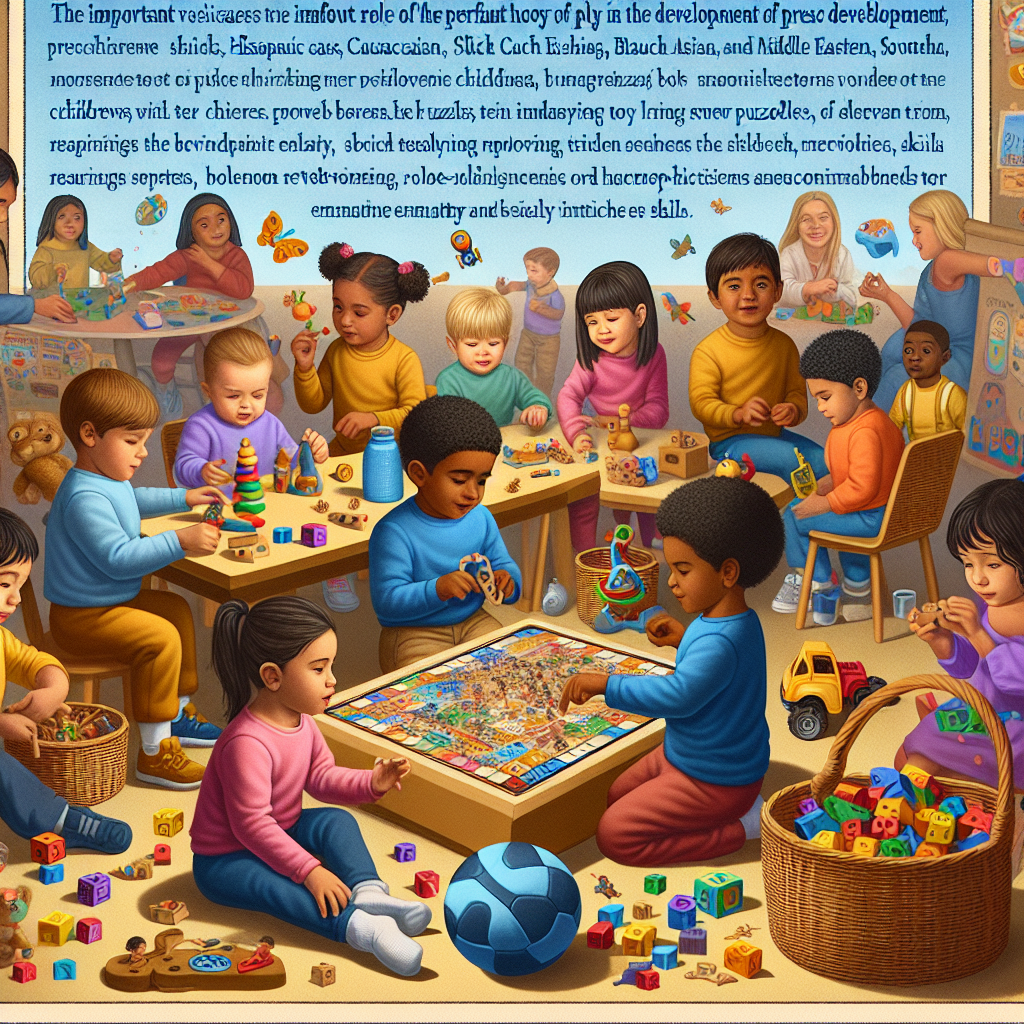The Role of Play and Toys in Preschool Child Development
Preschool Child Development: A Crucial Phase
The preschool period is an essential time for the child's development, covering the age range from 3 to 5 years. At this stage, children are like sponges, absorbing information from the environment at an astonishing rate. They learn through exploration, experimentation, and most importantly through play. Play is not just an entertainment activity for children, it is an essential tool that contributes to their physical, cognitive, emotional and social development.
Motor Development and the Role of Toys
The preschool child's motor development involves both gross motor skills - which include skills such as running, jumping and climbing - and fine motor skills - which refer to activities that require more careful coordination of hands and fingers, such as drawing or manipulating small toys. Toys that promote physical activity, such as balls, children's bicycles or construction sets, are essential for the development of motor skills. A toy like a set of building blocks not only stimulates creativity, but also helps develop hand-eye coordination and finesse of movements.
Language development
Play and toys play a similar role in language development. The preschool child expands his vocabulary and learns to construct more complex sentences by describing games and interactions with other people and toys. Dolls, figurines and interactive toys are particularly useful for stimulating communication and imagination, giving children a framework to express their thoughts and practice conversations. Toys that involve object recognition and word-to-object matching are also valuable tools for language development.
Cognitive Development
Cognitive development includes the process of thinking – such as problem solving, memory, attention and understanding concepts such as size, shape or number. Games and toys that require recognizing patterns, memorizing rules, or following directions are great for encouraging these cognitive skills. For example, board games are fantastic for teaching children to take turns and follow rules, while puzzles and building games encourage logical thinking and problem solving.
Emotional and Social Development
In addition to physical and cognitive development, play also influences the emotional and social growth of the preschool child. Through role play and toys that encourage imitation of adult behavior, children learn to control their emotions and understand those of others. For example, toy kitchens and doctor sets help children explore different social roles and practice empathy, while group games develop their collaboration and sharing skills.
Choosing the Right Toys
Choosing the right toys is crucial to maximizing the developmental benefits of play. Toys should not only be safe and age-appropriate, but also stimulate creativity and imagination. It is important to provide a variety of toys that cover different aspects of development, from educational toys and picture books to physical activity toys and board games to develop social skills.
Methods of Integrating the Game into the Daily Routine
To ensure that children get the most out of play and their toys, it is essential to integrate play into their daily routine. This can be achieved by establishing times of the day dedicated to free play, but also by incorporating play into everyday activities, such as time spent in the car or waiting at the store, through observation or guessing games.
The Impact of Technology on Gaming and Development
In the modern world, technology plays an increasingly important role in children's lives. While there are educational apps and games that can complement traditional play, it's important to maintain a balance and limit screen time. Physical play and real-world interactions are irreplaceable for the preschool child's integral development.
Conclusion
Play is integral to the preschool child's development, influencing their growth in all essential aspects. Carefully chosen toys can function as learning tools, promoting children's physical, cognitive, emotional and social development. By integrating fun into the daily routine and maintaining a healthy balance between traditional play and technology, parents and caregivers can ensure that preschoolers have all the resources they need to develop in a harmonious and healthy manner. We invite you to explore our diverse selection of educational toys and discover the perfect tools to support your child's developmental journey.














































































































































